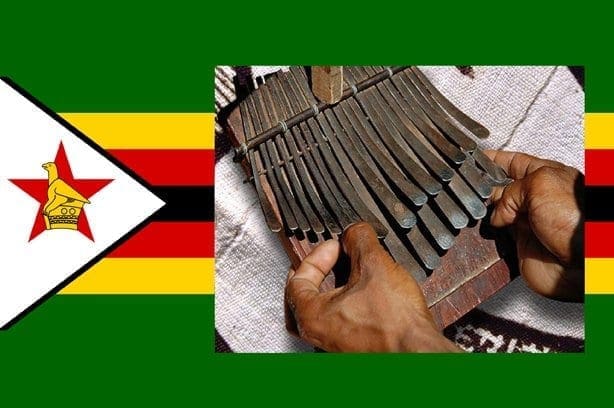When Bob Marley performed a historic concert to celebrate Zimbabwe’s independence in 1980, did he imagine that the country’s “chimurenga”, or fight for freedom, was only just beginning? Let’s tune into 40 years of history…
It was exactly 40 years ago, in 1980: Zimbabwe finally gained true independence. The long years of violence came to an end. Ian Smith, the architect of the country’s segregationist regime, comparable to that of apartheid, had even sworn that “never in a million years” would the Blacks have power, but the Marxist guerrillas had taken the system apart. It was time for celebration. Prince Charles, the heir to the British throne, was in Salisbury (Harare), but the uncontested star of the celebrations was Bob Marley.
On the night of 17 April 1980, the Jamaican singer performed at the Rufaro Stadium around midnight. Traveling via London, he had chartered a plane at his own expense to bring with him 21 tonnes of equipment. After the speeches, after the slow and solemn replacement of the Union Jack with a new green, yellow, red and black flag, more than 30,000 people danced and sang like crazy, accompanying the reggae ambassador’s calls for African Unity with their legs, arms and voices. When the backing singers started to sing “Zimbabwe”, from the Survival album released the previous year, the crowd went mental. The atmosphere was electric; the moment historic. If it were possible to list the most important concerts of the XXth century, this performance by Bob Marley - who had only a few months to live - would surely rank at the top.
Bob Marley sings Zimbabwe on the scene of the Rufaro stadium, in the night from the 17th to the 18th of April, 1980 .
Recorded in Kingston with some of the best local musicians (Aston “Family Man” Barrett, his brother Carlton, Tyrone Downie, Junior Marvin…), “Zimbabwe” opens with a reminder of a population’s right to self-determination: “Every man gotta right to decide his own destiny”, as well as urging African leaders to avoid power struggles. Had Bob Marley already guessed what was going to unfold? The new prime minister, Robert Mugabe, who had delivered a reconciliation speech on 17 April, accused his interior minister, Joshua Nkomo, two years later of plotting against him and massacred his supporters. After becoming president following a constitutional reform, he established an authoritarian regime that quickly led to the economic collapse of the country.
During his 37-year reign, one of Mugabe’s main opponents was a musician, the intransigent Thomas Mapfumo, although, prior to independence, the singer had supported Mugabe. In the 1970s, one of his songs, Hokoyo!, a warning to the white government, earned him three years of imprisonment. While he may have helped bring Mugabe to the power, he did not think twice about criticising him as soon as it became clear that the former guerrilla would stop at nothing to stay in power. Mapfumo is one of those musicians who, like Tiken Jah Fakoly, finds it easier to write political firebombs than half-hearted love songs. And an impressive number of his musical Molotov cocktails have been inspired by Mugabe, such as “Zimbabwe”, released 23 years after Bob Marley’s song. In the video, scenes of jubilation in 1980 are replaced by challenging images of burning streets running with blood.
Twenty-three years after Bob Marley, Thomas Mapfumo sings of his vision for Zimbabwe
The musical style that Thomas Mapfumo forged in the 1970s is known as “chimurenga”, which means “liberation” or “struggle” in Shona, the most widely spoken language in Zimbabwe. For the musician, this struggle has a cultural dimension as well as a political one. Mapfumo, who, like many young Africans of his generation, began by covering northern American soul classics, finally chose to express himself in his mother tongue and put the heady notes of the mbira, a traditional thumb piano, at the heart of his music. His orchestra sometimes includes two or three players of this lamellophone, as well as a bass player, drummer, several guitarists, one or two keyboard players and a thunderous brass section.
Marima nzara, a song from 2002, the story of a father who bankrupts his family.
After cutting his teeth in one of Thomas Mapfumo’s first groups, the Wagon Wheels, Oliver Mtukudzi forged his own path and made the voice that defined him resound around the world: force, deep, harsh, precipitous and instantly recognisable, it opens immediately with comforting humanity. Oliver transposed the stuttering of the mbira to the guitar and made it the other half of his signature sound.
Todii : the voice of Thoma Mapfumo rises to call for prudence in the face of AIDS
Despite genuine international recognition, Oliver Mtukudzi chose to continue living in Zimbabwe, unlike the exiled Mapfumo. Oliver was more of a moralist than a polemicist. He sometimes sang for the ruling party, as well as for Morgan Tsvangirai, a historic political opponent. He didn’t hesitate to say what he thought, but always in ethical terms. His song “Wasakara” was taken as a criticism of Mugabe because its lyrics repeated “accept you are old; admit you are worn out”. But he never confirmed this interpretation, nor denied it. When the political police questioned him (censorship was in place at the time), he simply replied: “Don’t you understand Shona?”
Wasakara, a song from 2000, year of Robert Mugabe’s 76 birthday
With Stella Chiweshe, chimurenga took on a female slant. As evidenced by a recent reissue of her early singles by Glitterbeat, she was the first Zimbabwean woman to record the mbira. During her adolescence, not only was the instrument a male preserve, but ceremonies guided by the mbira were broken up by the segregationist regime’s police. Stella braved these prohibitions and learned to play the instrument secretly. She acquired her own instrument only after the release of her first album in 1978, when it became clear that she was the flag bearer for Shona spirituality. By joining the National Dance Company of Zimbabwe after independence and embarking on international tours, Stella Chiweshe paved the way for other women.
Chachimurenga, a song from the album Talking mbira (Piranha, 2001)
Chiwoniso died in July of 2013, under 40 years of age. In November 2017, at age 93, Robert Mugabe was overthrown by a military coup, while he was trying to make his wife his successor. He died in September 2019 in Singapore, where he was receiving treatment that no Zimbabwean hospital could have provided. Oliver Mtukudzi died a few months before him, in January 2019. Thomas Mapfumo is now 75; Stella Chiweshe barely a year younger. The heroes of chimurenga have passed away or become weary, but their struggle will go down in history…
Zvichapera by Chiwoniso : a cover of a song by Thomas Mapfumo, published posthumously by Nyami Nyami Records
However, nothing has fundamentally changed in Zimbabwe. Robert Mugabe has been replaced by his ex-prime minister, Emmerson Mnangagwa. Just last year, protests against the rising cost of living have been violently repressed, the army once again has been accused of murders and rapes against opponents. Last summer, Harare has durably lacked drinkable water, since the main water treatment plant couldn’t acquire the necessary products for filtering. A new generation of artists is taking part in these conversations. They are called Poptain, Winky D, Tocky Vibes or Lady Squanda. Their music, called « Zimdancehall » comes from reggae, but the images in their video sadly recall those of Thomas Mapfumo in the clip Zimbabwe. Even if it isn’t called « Chimurenga » anymore, the struggle of Zimbabwean musician continues…
Zvitori Nani (Zim Soldiers Diss) de Tocky Vibes : attention aux images qui peuvent choquer


